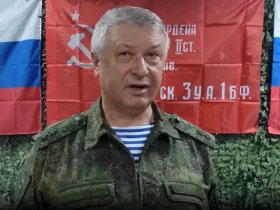UWI author Yunus Soner provided an interview to Turkish daily newspaper aslında.com. Below we presented the interview, conducted by Leyla İlhan, in translation to English.
In the elections held on July 28 in the South American country of Venezuela, Nicolás Maduro was re-elected as president. The US-backed opposition, which did not recognize Maduro’s victory, claimed that the elections were fraudulent. Disinformation campaigns spread on social media, with the support of the USA, also causing turmoil in the country. Political scientist Yunus Soner evaluated the events in Venezuela to aslında.com.
A strike against institutionalism
Stating that it was a non-traditional coup against institutionalism was occurring in Venezuela, Soner said, “Venezuela has a constitution and there are certain institutions for elections. Chief among these is the National Electoral Council. The Venezuelan constitution clearly assigns the National Electoral Council to count the electoral votes and announce the election results. However, the opposition declared that they will not recognize the election results announced by the National Electoral Council in these elections but will instead recognize their own election results.” he said.
“USA supports the opposition”
Stating that the USA plays a role in the background of the elections in Venezuela, Soner said, “The USA supports the main opposition parties in Venezuela both intellectually and materially. Already in July, former US Government official Mark Feierstein published a report at the Wilson Center, a think tank funded by the US Congress. Feierstein wrote that the leading candidate of the opposition will announce his own results on the election day, collect his own election documents and that other countries will quickly recognize officially these results.”
“A cyber-attack was carried out”
Stating that other external actors were also effective in preventing the election results in Venezuela, Soner said, “According to the Venezuelan prosecutor’s office, they carried out a cyber-attack coming from North Macedonia. This cyber-attack targeted the electoral system in Venezuela. We need to know that in Venezuela, votes are cast electronically. So, you press a touch screen, select the candidate you want there, and it is recorded electronically. These are digital data. And there was an attack on that,” he said.
“Website was attacked”
Stating that the opposition started to disclose their votes and results simultaneously with the cyber-attack, Soner said, “An attack was carried out on the website of the National Election Council. The website could not be accessed for days. The opposition uploaded its election results to websites (resultadosconvzla.com) controlled by foreign countries such as the USA and the UK.” he said. Stating that Venezuelan President Nicolás Maduro’s X account was restricted on the basis of the algorithm, Soner said, “Main opposition leader Edmundo Gonzalez’s social media posts received millions of views each time.”
“Campaign of disinformation”
Reminding that Maduro had called on the people of Venezuela to delete WhatsApp and that the USA was spreading disinformation on X, Soner said: “What I witnessed firsthand in Venezuela was that many protest images started to be published on X. It was shown that thousands of people took to the streets. But on that day, I was in Caracas, the capital of Venezuela. It was an incredibly rainy day. Nobody was even in the mood to go shopping, let alone attend demonstrations. This situation continued in the following days and disinformation was spread through distorted videos,” he said.
“Defeating the Monroe Doctrine”
Stating that Venezuela is one of the pioneering countries that overturned the 200-years-old Monroe Doctrine, Soner said: “The content of the Monroe Doctrine is as follows; The American continent, that is, North America and South America, is under the hegemony of the USA, and no non-continental power can ultimately determine the developments here. This is an important doctrine that determines America’s foreign policy towards South America. Venezuela is a country that has defeated this doctrine practically and very harshly. Venezuela has very good relations with countries such as Türkiye, Iran, Russia and China. These relations also include Venezuela’s oil-industry. Venezuela has actually broken the hegemony established by America in the political and energy fields.”
“Venezuela showed the practicality of the multipolar world”
Emphasizing that Venezuela has shown that the multipolar world has become a reality, Soner said, “Venezuela has not only its own foreign policy, but also, provided an example with it for Bolivia, Nicaragua, Ecuador and, in some periods, Brazil and Argentina to some extent. Caracas managed to keep the continent together, being able to establish regional alliances aimed at countering American influence,” he said.
The reason for the instability?
Soner explained the reason for instability as such: “The United States does not give up on sanctions, on supporting the opposition, on inciting paramilitary forces in neighboring Colombia to commit terrorist acts, and on provoking its allies in other South American countries against Venezuela.”
Life returned to normal in Venezuela
Noting that the instability in Venezuela is not as grave as shown on social media, Soner said, “Venezuela remained under major sanctions. The country experienced very serious economic problems. However, the economic problems started to be overcome gradually. The Venezuelan government is beginning to overcome violent actions initiated by the opposition by paying money, and thousands of people were detained. The current situation in Venezuela is actually stable. There is perhaps no situation as big as the chaos and the threshold of war as reflected on social media. I would also like to underline this. So in general, life has started to return to normal in Venezuela,” he said.
Previously published in Turkish on aslinda.com here. Translation by UWI.

















Leave a Reply